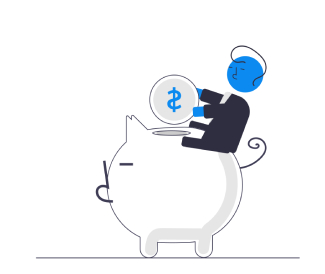What Is Human Capital?
Human capital refers to the collective skills, knowledge, experience, and capabilities of an organization's workforce. It’s the intangible asset that makes businesses competitive and resilient. Unlike physical assets, such as machinery or buildings, human capital isn’t something you can buy off a shelf. Instead, it’s cultivated through education, training, and experience.
Why Is Human Capital Important?
You might wonder, “Why all the buzz around human capital?” Well, the answer is simple: it’s the backbone of any successful organization. Here’s why it’s so crucial:
1. Drives Innovation and Productivity
A knowledgeable and skilled workforce fuels creativity. Employees with strong problem-solving skills and expertise bring new ideas, leading to better products, services, and efficiency.
2. Enhances Competitive Advantage
Companies that invest in their people stay ahead of the competition. Skilled employees adapt to industry changes, giving businesses an edge over those stuck in outdated practices.
3. Improves Employee Satisfaction and Retention
Investing in training and career development makes employees feel valued. In turn, they stay loyal, reducing turnover costs and hiring hassles.
4. Boosts Economic Growth
On a larger scale, when businesses invest in human capital, it leads to higher wages, better job opportunities, and overall economic prosperity.
Types of Human Capital
Not all human capital is the same. It varies based on skills, experience, and education levels. Here are the main types:
1. General Human Capital
These are skills and knowledge that can be applied across multiple industries and roles. Examples include leadership, communication, and problem-solving skills.
2. Specific Human Capital
This includes skills tailored to a particular industry or job. For instance, a software developer's coding expertise or a doctor’s medical knowledge falls under this category.
3. Social and Emotional Human Capital
People skills matter just as much as technical expertise. Emotional intelligence, teamwork, and adaptability contribute to a positive workplace culture and strong leadership.
4. Cultural Human Capital
This refers to the shared values, beliefs, and attitudes that shape how employees interact and collaborate. A company with a culture of continuous learning fosters innovation and success.
How to Measure Human Capital
Unlike tangible assets, human capital is tricky to quantify. However, businesses use several key indicators to assess its value:
- Employee Performance Metrics: Productivity, efficiency, and project completion rates.
- Training and Development ROI: The impact of training programs on employee growth.
- Retention and Turnover Rates: High retention often signals strong human capital management.
- Employee Satisfaction Surveys: Happy employees are often more engaged and productive.
Ways to Invest in Human Capital
Building strong human capital isn’t a one-time task, it's an ongoing process. Here’s how companies can invest in their people:
1. Education and Training
Encouraging employees to upskill and reskill keeps them relevant in a constantly evolving job market. Online courses, workshops, and certifications enhance their capabilities.
2. Employee Wellness Programs
A healthy workforce is a productive one. Companies that prioritize mental and physical well-being experience higher engagement and lower absenteeism.
3. Career Development Opportunities
Providing clear growth paths motivates employees to excel. Promotions, mentorship programs, and leadership training create a culture of continuous improvement.
4. Work-Life Balance and Flexibility
Happy employees perform better. Offering remote work options, flexible hours, and family-friendly policies improves job satisfaction and retention.
5. Diversity and Inclusion Initiatives
A diverse workforce brings fresh perspectives and fuels innovation. Companies that foster an inclusive environment see better teamwork and overall performance.
Human Capital vs. Physical Capital
People often confuse human capital with physical capital. While both are essential, they’re fundamentally different.
| Feature | Human Capital | Physical Capital |
|---|---|---|
| Nature | Intangible (skills, knowledge) | Tangible (equipment, buildings) |
| Depreciation | Can increase with investment | Wears out over time |
| Transferability | Stays with the individual | Can be bought and sold |
| Role in Business | Drives creativity and growth | Supports production |
Challenges in Human Capital Management
Despite its importance, managing human capital comes with challenges. Here are some common obstacles:
1. Talent Shortages
Finding skilled employees can be tough. Industries like tech and healthcare often struggle with talent gaps due to rapid advancements.
2. Employee Burnout
Overworked employees are less productive. Poor work-life balance and excessive workloads lead to high stress and job dissatisfaction.
3. Resistance to Change
Some employees resist new technologies and processes, making it harder to adapt to industry shifts.
4. Lack of Training Investment
Many companies cut corners on training. Without continuous learning, employees struggle to keep up with evolving job demands.


 Back to Glossary
Back to Glossary